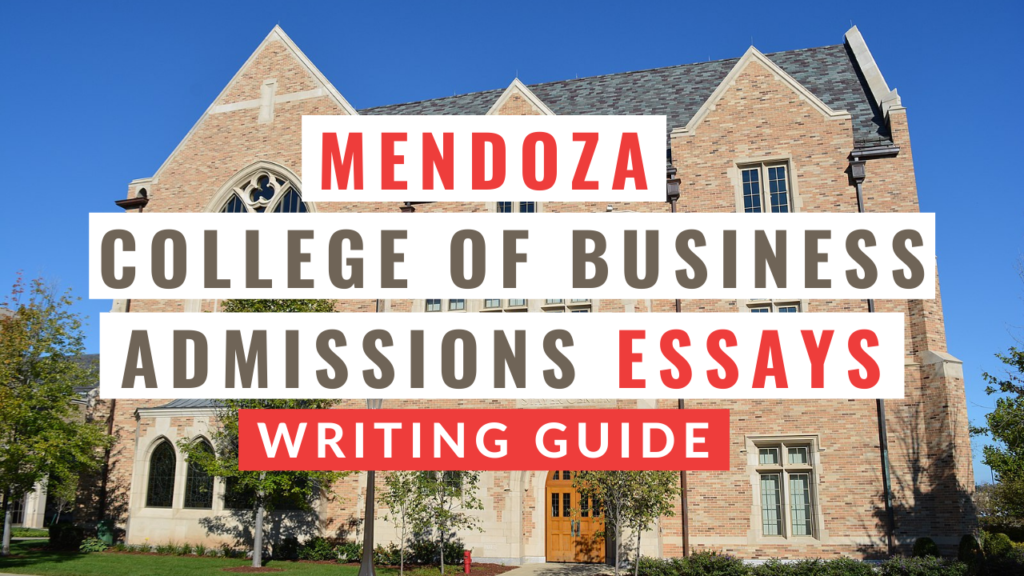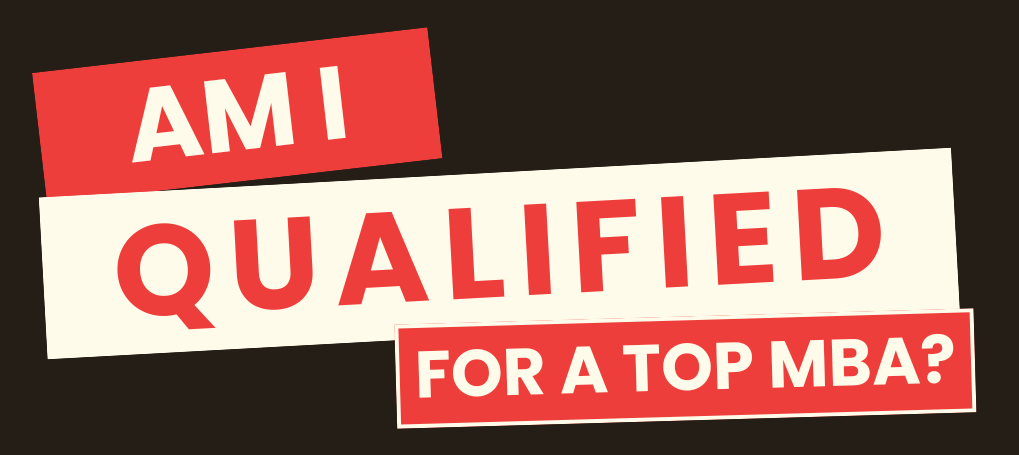Lucky for MBA applicants, Mendoza College of Business tends to stick to the same prompts year-on-year, which means it’s never too early to get started! Wondering where to start, what to write? No worries, we have all the tips you need to get a nice start on writing a quality essay for Mendoza College of Business.
Most MBA programs will highly value the personal statement in your application. So don’t slack on it! Writing a unique essay that captures your individuality while responding to the prompt is a challenging task, but here at Menlo Coaching, we have a comprehensive guide to perfect it.
The Mendoza College of Business is looking for students with a well-rounded background and lots of experience that can be translated into a succinct and compelling statement. One of the essential tips for an impactful essay is asking yourself why you chose to highlight a particular experience. Did it show significant professional development? Did it show how you overcame a personal struggle? Making sure your essay connects to the prompt, especially that it shows why you are pursuing an MBA, will make your essay stand out. No matter what the essay prompt is, these tips are broadly applicable. With that being said, the three types of essays you will see on Mendoza College of Business’s application are personal, career goals, and behavioral.
The Personal Statement Essay
Personal essays encompass your moral character, passions in and out of work, and the relationships you have fostered with friends and mentors. This essay type is where you can show the MBA program who you are as an individual and the intrapersonal impacts you have made on people around you. Mendoza College of Business is looking to recruit students who show compassion and enthusiasm in the office and with the people in their lives. Make sure to emphasize where you have shown empathy in your life while explaining how you will contribute positively to the on-campus experience.
One of the biggest mistakes students make when writing a personal essay is focusing too much on their professional expertise. This essay is where you can move away from talking about your work and speak about who you are outside of your job. Research Mendoza College of Business’s core values by speaking with current students and faculty to capture the essence of the program. Tailoring which attributes you write about to each program is important. It shows you’ve done your research and are a genuinely kind, empathetic person in your real life.
Personal Statement Essay
The holistic nature of the application evaluation process takes into account multiple aspects of one’s profile. In addition to a resume and transcripts, this slide presentation allows you to show aspects of yourself that cannot be seen elsewhere. Tell us about yourself and your unique qualities outside of your academic and professional experience.
Please consider the following guidelines when creating your presentation:
- Please submit four (4) slides.
- You may create your slides in any software that works for you, but you must save and upload as a .pdf.
- Do not use audio or video files.
- You are free to share anything about yourself that you think would be of value to the Admissions Committee. You can have some fun and be a bit more lighthearted in this portion of your application. Your tone should reflect your personality.
- Please be assured that the Admissions Committee will read your essay, your resume, and your transcripts in detail. Your slides are an opportunity to go beyond your academic and work history and show the Committee who you are as a person. (upload file)
Source
The Career Goals Essay
The career goals essay is the space to emphasize your post-MBA plans. MBA programs want to accept students who have concrete, achievable career plans and a roadmap to success. MBA programs want a glowing post-grad report that proves they produce successful graduates with many job prospects (and who will donate money in the future)! The Mendoza College of Business also wants students to promote their program to friends, co-workers, and prospective applicants.
The career goals essay combines your hard statistics (ex: GMAT score) with your interpersonal skills (ex: recommendations) to formulate the case for getting an MBA. Make sure to state your achievable short-term and long-term goals explicitly. Explain why an MBA would help you achieve these goals and how Mendoza College of Business is essential to your plan. Connecting the positive attributes from your personal essay to your career goals essay is critical to forming a well-rounded application. Also, research what fields the graduates of Mendoza College of Business enter, and emphasize your findings in the essay to show you’re genuinely interested.
- Career Goals
Statement of Purpose. Please share your short term professional goals. How does the Notre Dame Master of Business Administration help achieve your career goals? Your statement of purpose should be 100 words or less. (upload file)
Source
The Behavioral Essay
The final type is the behavioral essay, which might sound similar to the personal essay. However, instead of analyzing your individual attributes outside the workplace, this prompt asks you to reflect on your professional leadership skills. This could mean recalling a time when you’ve led a team to success or recovered after a failure and what you learned. Be honest with this essay, and don’t downplay the story; AdCom can tell if you’re disingenuous. Showing growth is essential to a constructive essay and shows development that you can easily apply to on-campus activities.
Say what mistakes you made and how you remedied them; if there is a situation where you used the lessons you learned from the failures, be sure to include that. Having the bravery to express your failures shows that you are willing to admit your mistakes.
Behavioral Essay
The University of Notre Dame was founded in 1842, by Father Edward Sorin, C.S.C, with a mission to become “one of the most powerful means for doing good in this country”. In 1879, Father Sorin’s vision for Notre Dame seemingly came to an abrupt end when a massive fire destroyed the main building that housed the entire university.
Instead of giving up, Father Sorin interpreted the fire as a sign that his dream was too small. He then decided to rebuild, bigger and better. The now iconic main building still stands today, topped by the gleaming Golden Dome, as an ongoing symbol of perseverance and vision.
Tell us about a time, in your personal or professional experience, when you persevered and overcame obstacles or you had to start over and rebuild. What did you learn most about yourself, and how has that influenced how you show up in the world?
(upload file, maximum 500 words)Please follow these guidelines:
- Size 12 font
- Double-spaced with paragraphs
- 500 words or less
Source
Conclusion
Overall, honesty and growth are the most important parts of a successful MBA application essay. In addition, applying the lessons you learned shows improvement in your interpersonal and professional skills, making you a more attractive candidate for MBA programs.
Struggling with Mendoza MBA admissions essays? Our expert team will guide you through each prompt, providing tailored advice on crafting compelling essays. Discover our MBA admissions consulting services for personalized assistance.



